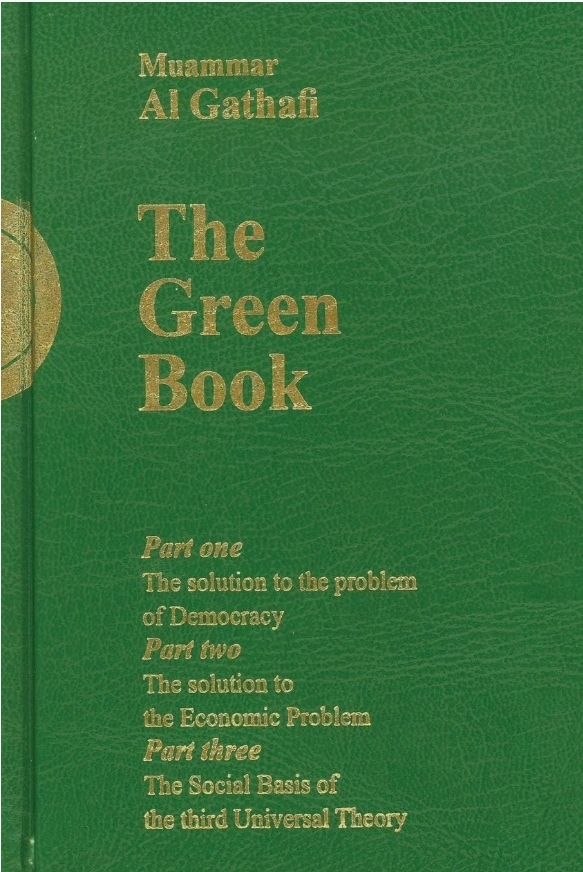Muammar al-Gaddafi’s The Green Book is a political manifesto that outlines his vision of governance and society, rejecting both capitalism and communism. Published in three parts in the 1970s, it presents a third way known as “Islamic socialism,” advocating for a stateless and classless society. The book covers:
Political System: Gaddafi proposed “direct democracy” through a system of local committees and popular congresses. He argued that representative democracy is flawed, as it centralizes power in the hands of a few and does not reflect the people’s true will. Instead, he envisioned a system where people would participate directly in decision-making.
Economic System: In the economic section, Gaddafi criticized both capitalism and Marxism, advocating for a form of socialism based on the idea that workers should be the sole owners of production. He rejected wage labor, seeing it as a form of exploitation, and proposed a system where each worker would be self-employed or part of cooperatives, thus eliminating traditional employer-employee relationships.
Social and Cultural Issues: Gaddafi tackled issues related to family, tribalism, gender, and education. He argued for a society that promotes traditional family values and gender roles, yet simultaneously endorsed some progressive ideas, such as a focus on literacy and education for all.
The book’s ideas significantly influenced Libya’s political and social structures during Gaddafi’s rule, although its practical application was often criticized as inconsistent or coercive.







